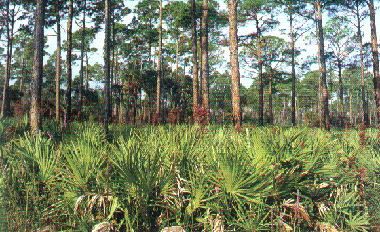
“Natural
Areas as Necessary Components of Man’s Total Environment”
by
Eugene P. & Howard T. Odum
“Our theme is that natural environment is an essential part
of man’s total environment. Preservation of a substantial portion of the
biosphere in a natural state, while not a panacea for all the ills of humankind,
is, nonetheless, a necessity if we base the carrying capacity of the earth on
the quality of human life. First, we define ‘natural environment’
as that part or our environment which is essentially self-supporting, in that
a minimum of human management is required for maintenance. In terms of function,
‘natural environment’ is the part of man’s life support system
that operates without energetic or economic input from the power flows directly
controlled by man. ‘Natural environment’ is a more restricted category
than ‘open space,’ a term widely used by planners to mean any part
of the landscape, whether natural or man-made, that is free of building structures.
In this context ‘natural environment’ includes ecological systems
ranging from little-used wildernesses to moderately used forests, grasslands,
rivers, estuaries and oceans which produces useful products and recycle wastes
on a continuous basis, but without appreciable economic cost to man."“Developed
systems generate economic wealth but the economic cost of maintenance in creases
as a power function of the intensity of the development.”
For an analysis of the above paragraph with active links for key terms press here.
For a formula interpreting the above go on.
C is equal to any number called "N," times that number minus one, times that same number "N" squared.
------------
or approximately C = any number (3), multiplied by 3-1,
multiplied by 3 squared
or
54
C is the network of services
(sidewalks, roads, sewers, fire, police, schools, hospitals)
N is the number of units in the network of services “Thus if a city doubles
from 10 to 20 million units the cost goes up 4 times.”
pp. 178-179
37th Annual National Wildlife Conference Proceedings